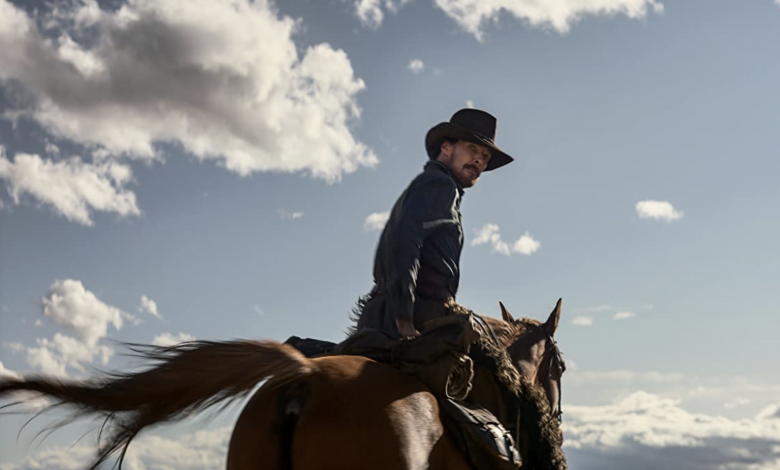The Power of the Dog Review

Josh Carone ‘22 / Emertainment Monthly Staff Writer
If The Power of the Dog proves anything, it is that Jane Campion’s style was built for the Western genre. Based on the 1967 Thomas Savage novel of the same name, the film was produced and distributed by Netflix earlier this month. Led by powerful performances by Benedict Cumberbatch and Jesse Plemons, the film follows two cattle herding brothers, Phil and George Burbank, and their encounter with a widowed inn-keeper and her son. It’s a story of masculinity, love, and above all else, an appreciation for solid leather.
For the majority of the 21st century, Jane Campion was absent from the film community, achieving success on the small screen with the hit BBC show Top of the Lake. The Power of the Dog marks a return for Campion to the cinema, as well as the return of the melodramatic period pieces both audiences and critics expect and love from the Aussie director. Campion works best within this genre, and the slow-burn storytelling of The Power of the Dog bears an uncanny resemblance to the director’s 1993 Best Original Screenplay winner, The Piano. Her camera work remains old-school, relying heavily on stationary coverage, tracking shots, and a handful of gorgeous landscapes that could secure cinematographer Ari Wegner an Academy Award nomination.
However, like The Piano, The Power of the Dog rests solely on the shoulders of its lead. Luckily, Benedict Cumberbatch shines as Phil Burbank, giving possibly the best performance of his career and one that will undoubtedly be recognized come awards season. Phil is the domineering alpha of the brothers, a mean-spirited drunk whose wrath is only exceeded by his astounding intellect. And yet, there’s a sensitivity to Phil that audiences glean from his relationship with his son-in-law Peter, played masterfully by Kodi Smit-McPhee. Their companionship, without spoiling anything, is the backbone of the film, and easily the finest aspect of the story.
Jesse Plemons and Kirsten Dunst, who are married in real-life, also turn in fantastic performances as the on-screen caregivers to Peter. Dunst, in particular, is dynamite as Rose. She is Phil’s foil in every way, and their rivalry provides a much-needed tension to the methodical, sedative pacing of the film; all coming to a head in a climactic ending that makes Holly Hunter’s finger chop look like a walk-off into the sunset.
But despite its successes, The Power of the Dog is and will not be a unanimous favorite. Critics of Campion will once again take fault with her sluggardly approach to storytelling, and it is hard to believe the lizard brains of young people will be satiated with two hours of Montana melodrama. Nevertheless, Campion remains one of the great filmmakers working, and The Power of the Dog is amidst the top of her canon. Campion, along with her champions, should take solace knowing that most criticism of the film is not an indictment on the quality, but rather a matter of taste, and that come awards season, The Power of the Dog will receive the respect it is due as one of the best films of 2021.